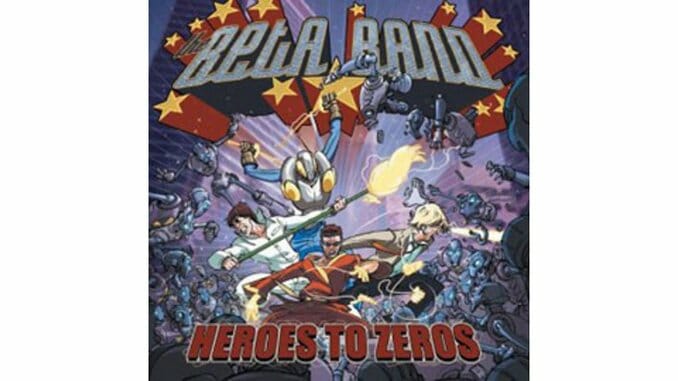The Beta Band – Heroes to Zeros

Every time I read an album review effusing praise over how many different styles of music the artist managed to cram onto a single disc, or worse, into a single song, I make a mental note to avoid that record at all costs. I sometimes even find myself wondering if The Beatles were worth it. The greatest band ever? Probably. But they unleashed the pestilence of eclecticism on the world. The White Album, Sgt. Pepper’s and Abbey Road were all exercises in sustained aesthetic discontinuity, and it was because of the particular genius of The Beatles that they were able to assemble masterpieces out of so many disparate parts. Unfortunately, legions of bands not possessing that particular genius were thus exposed to the notion that great music could be made by juxtaposing sounds and styles in apparently random, illogical combinations.
-

-

-

-

-

-

-

-

-

-

-

-

-

-

-

-

-

-

-

-

-

-

-

-

-

-

-

-

-

-

-

-

-

-

-

-

-

-

-

-








































